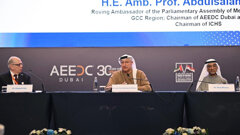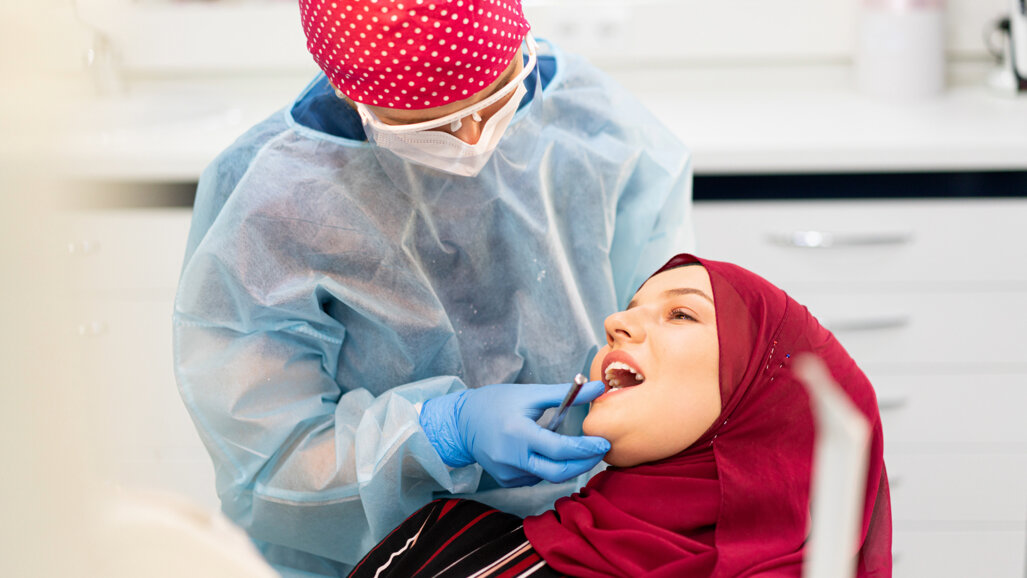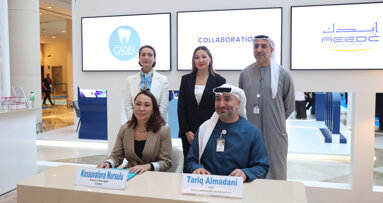TEHRAN, Iran: A new analysis of Global Burden of Disease data from 2021 shows that, while some indicators of dental caries have improved across the Middle East and North Africa (MENA), the region continues to experience a higher burden of caries than the global average, particularly among adults. The study highlights persistent inequalities, varying national trends and the need for stronger preventive policies.
The study assessed the incidence, prevalence and years lived with disability linked to caries in the primary and permanent dentition across 21 MENA countries from 1990 to 2021. In permanent dentition, the age-standardised incidence rate showed a small upward shift. However, both prevalence and disability rates fell modestly over the same period. Despite these improvements, all three measures remained above global averages, reflecting continued unmet need for prevention and treatment.
For primary teeth, the picture was slightly more positive. Both incidence and prevalence declined region-wide, and disability rates also fell, mirroring global trends. The highest incidence occurred among children aged 5–9, while prevalence peaked in children aged 2–4.
At the national level, variation was pronounced. Afghanistan, Saudi Arabia and Sudan consistently recorded among the highest prevalence rates for caries in the permanent dentition, whereas Iran, Egypt and Morocco reported the lowest. In primary teeth, Saudi Arabia and Iran were among the countries with the highest burden in both 1990 and 2021.
Socio-demographic factors strongly shaped outcomes. The study identified generally higher caries burden in lower-income countries, where limited access to oral healthcare, dental workforce shortages, low insurance coverage and urban–rural service inequalities contribute to poorer oral health. Ongoing conflicts, particularly in Syria, Yemen, Libya and Sudan, have further weakened dental service provision and exacerbated population vulnerability.
Conversely, rising caries incidence in the region’s higher-income countries was linked to increased sugar consumption. The average sugar intake in MENA countries exceeds World Health Organization recommendations, and fewer than half of the countries have implemented taxation on sugar-sweetened beverages.
The authors argue that greater investment in preventive care, early childhood dental programmes and region-wide public health initiatives—particularly those targeting dietary sugar—will be required to reduce the long-term burden. They highlight the need for policies that expand access to affordable dental services and prioritise oral health equity.
The study, titled “Burden of permanent and deciduous dental caries in Middle East and North Africa (MENA): An epidemiological analysis of global burden of disease study from 1990 to 2021”, was published online on 6 October 2025 in BMC Oral Health.
Topics:
Tags:
DAMASCUS, Syria: As health workers, dentists are occasionally placed at risk of disease transmission, since they are exposed to bloodborne infections of ...
AMMAN, Jordan: The rite of passage through university education into the professional world is one that for many students is fraught with tension. ...
AMMAN, Jordan: As artificial intelligence continues to expand its role in healthcare, large language models such as ChatGPT are increasingly being used to ...
DUBAI, UAE: A new agreement between UCL Consultants— the consultancy arm of University College London (UCL)—and Dubai’s Liberty Dental Clinic is ...
DUBAI, UAE: The organisers of two significant dental expos have signed an agreement that aims to strengthen their collaboration in the Middle East and ...
Straumann Group’s Holger Haderer, who led its implantology business unit from 2019, assumed the role of head of the Europe, Middle East and Africa (EMEA) ...
Live webinar
Tue. 24 February 2026
10:00 pm UAE (Dubai)
Prof. Dr. Markus B. Hürzeler
Live webinar
Wed. 25 February 2026
12:00 am UAE (Dubai)
Prof. Dr. Marcel A. Wainwright DDS, PhD
Live webinar
Wed. 25 February 2026
8:00 pm UAE (Dubai)
Prof. Dr. Daniel Edelhoff
Live webinar
Wed. 25 February 2026
10:00 pm UAE (Dubai)
Live webinar
Thu. 26 February 2026
5:00 am UAE (Dubai)
Live webinar
Tue. 3 March 2026
8:00 pm UAE (Dubai)
Dr. Omar Lugo Cirujano Maxilofacial
Live webinar
Wed. 4 March 2026
5:00 am UAE (Dubai)
Dr. Vasiliki Maseli DDS, MS, EdM



 Austria / Österreich
Austria / Österreich
 Bosnia and Herzegovina / Босна и Херцеговина
Bosnia and Herzegovina / Босна и Херцеговина
 Bulgaria / България
Bulgaria / България
 Croatia / Hrvatska
Croatia / Hrvatska
 Czech Republic & Slovakia / Česká republika & Slovensko
Czech Republic & Slovakia / Česká republika & Slovensko
 France / France
France / France
 Germany / Deutschland
Germany / Deutschland
 Greece / ΕΛΛΑΔΑ
Greece / ΕΛΛΑΔΑ
 Hungary / Hungary
Hungary / Hungary
 Italy / Italia
Italy / Italia
 Netherlands / Nederland
Netherlands / Nederland
 Nordic / Nordic
Nordic / Nordic
 Poland / Polska
Poland / Polska
 Portugal / Portugal
Portugal / Portugal
 Romania & Moldova / România & Moldova
Romania & Moldova / România & Moldova
 Slovenia / Slovenija
Slovenia / Slovenija
 Serbia & Montenegro / Србија и Црна Гора
Serbia & Montenegro / Србија и Црна Гора
 Spain / España
Spain / España
 Switzerland / Schweiz
Switzerland / Schweiz
 Turkey / Türkiye
Turkey / Türkiye
 UK & Ireland / UK & Ireland
UK & Ireland / UK & Ireland
 International / International
International / International
 Brazil / Brasil
Brazil / Brasil
 Canada / Canada
Canada / Canada
 Latin America / Latinoamérica
Latin America / Latinoamérica
 USA / USA
USA / USA
 China / 中国
China / 中国
 India / भारत गणराज्य
India / भारत गणराज्य
 Pakistan / Pākistān
Pakistan / Pākistān
 Vietnam / Việt Nam
Vietnam / Việt Nam
 ASEAN / ASEAN
ASEAN / ASEAN
 Israel / מְדִינַת יִשְׂרָאֵל
Israel / מְדִינַת יִשְׂרָאֵל
 Algeria, Morocco & Tunisia / الجزائر والمغرب وتونس
Algeria, Morocco & Tunisia / الجزائر والمغرب وتونس





















































To post a reply please login or register